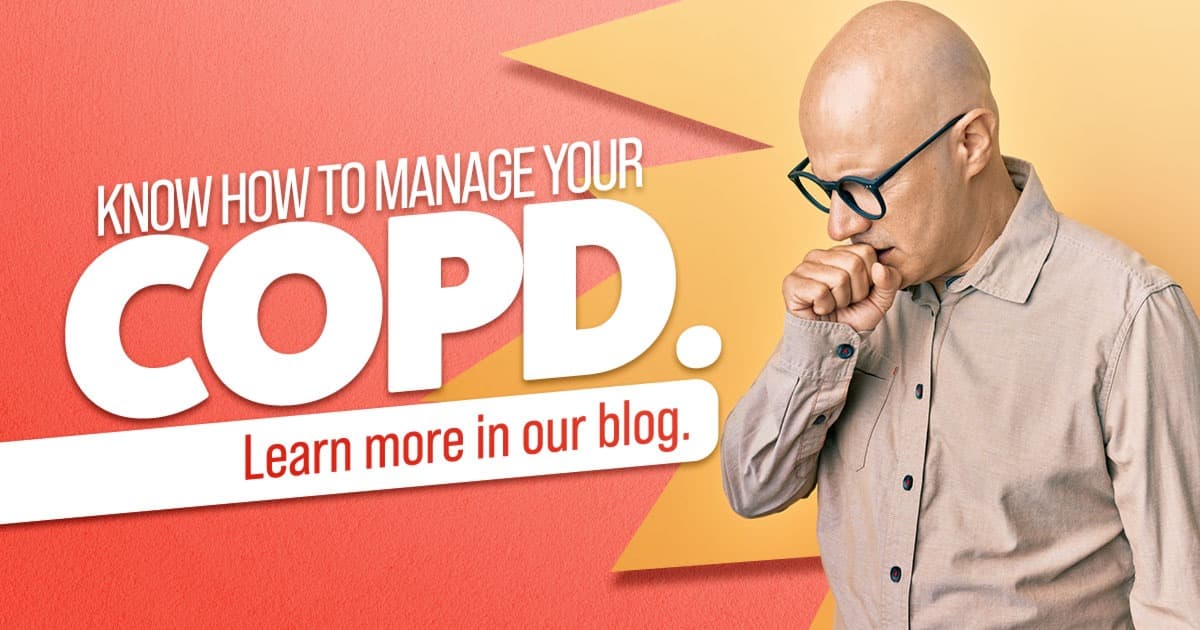COPD causes breathing difficulties, and nothing is more important when you can’t breathe. COPD can be challenging but managing your condition can improve your quality of life. Each person’s experience can vary with this condition, so how they manage it will differ. However, there are some general guidelines to consider when working with your doctor and other members of your care team to make a plan that is right for you.
Developing a Plan
There are a lot of things to know when you have COPD. Putting your care plan in a written format helps in many ways and should be updated with every visit or when something changes. It’s a tool that gives a snapshot of your current COPD condition in various areas. In addition, an action plan should be a part of every care plan for emergencies. The American Lung Association has an easy 3-step document you can utilize when setting up your plan with your doctor.
- Action Plan– Has a listing of symptoms categorized by severity and corresponding actions to take daily, during a flareup, and when urgent care is needed.
- The management plan area covers:
- How and when to take your medicines.
- General lung care includes smoking history, immunizations, diet and exercise plans, and pulmonary rehab visit history.
- Advances care planning choices
- Coexisting medical conditions
- Tobacco quit plan
Helpful Tips and Reminders for Managing your COPD
Once your plan is in place, there are some additional tips to help you better manage your COPD. For example, chronic conditions can affect your mental health and quickly become overwhelming. Recognizing these emotions, learning coping techniques, and when to get help to maintain a healthy balance. Also:
- Ending tobacco use– Smoking increases the severity of the damage and how fast it occurs. Stopping tobacco use the single most thing you can do to prevent that.
- Eat right, keep moving– Eating small, well-balanced meals and exercising regularly raises your fitness levels and ability to breathe better.
- Get enough rest– COPD can make it challenging to get enough sleep. Talk with your doctor about improving your sleep; if it’s not remedied after avoiding things like midday naps and caffeine before bed, don’t alleviate the issue.
- Take better breathing steps– Practicing deep breathing techniques retrains your body how to breathe. These exercises relax the airways and relieve shortness of breath.
Education Empowers Patients, Advances Medicine
Lastly, learning more about COPD and its impacts gives you more control in preventing problems and prioritizing your health. Similarly, education fuels our ability to design improved ways to detect, manage, and prevent COPD potentially. Through patient collaboration in research studies, these possibilities inch closer to reality and diagnosed individuals who need them most.

Get involved in COPD research studies as a volunteer, and join the force driving innovation and advancing future treatment options. To learn more about enrolling COPD studies at Florida Institute for Clinical Research, call (407) 658 0966, or stop by our website.
References:
https://www.nationaljewish.org/conditions/health-information/living-with-copd/managing-copd



